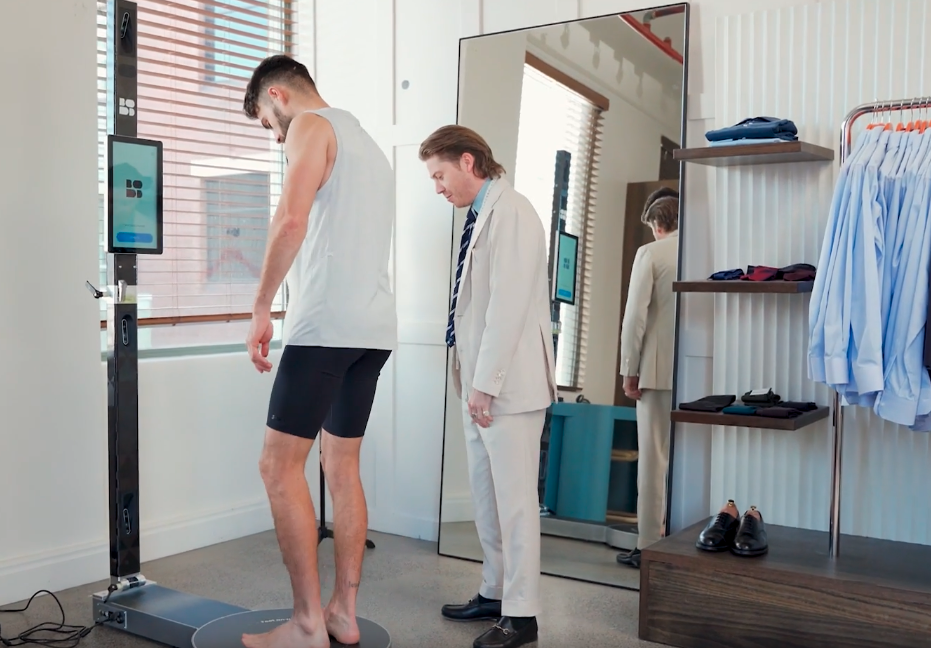3D Body Scanners and the Future of Custom Apparel Manufacturers
3D Body Scanning Technology
3D body scanning technology captures accurate body measurements and shapes using lasers or structured light, creating a detailed 3D model of the individual. This innovation offers unprecedented precision in garment fitting, a critical factor in custom apparel manufacturing.
By leveraging this technology, custom apparel manufacturers can significantly enhance the fit, comfort, and satisfaction of their products, setting new standards in personalized fashion.
Revolutionizing Custom Apparel Manufacturing
The integration of 3D body scanners in the custom apparel manufacturing process marks a revolutionary step forward. Traditional measurement methods, often prone to human error, can lead to inaccuracies in sizing, resulting in ill-fitting garments and high return rates.
3D body scanning technology eliminates these issues, providing a digital blueprint of the customer's body that can be used to create perfectly fitted garments every time.
Enhancing Personalization and Fit
One of the most significant advantages of 3D body scanners for custom apparel manufacturers is the ability to offer unparalleled personalization. Clients can now expect clothing that is not only tailored to their exact measurements but also customized to their preferences in style, fabric, and design. This level of personalization enhances the overall customer experience, fostering loyalty and setting custom apparel manufacturers apart from their competitors.
Streamlining the Manufacturing Process
3D body scanning technology also streamlines the manufacturing process, from design to production. By having accurate body measurements and modeling from the outset, manufacturers can reduce the time and resources spent on alterations and adjustments. This efficiency not only lowers production costs but also allows for quicker turnaround times, meeting the growing consumer demand for fast and efficient personalized fashion services.
Bridging the Gap Between Tradition and Technology
The fusion of traditional tailoring techniques with cutting-edge 3D body scanning technology represents a significant leap forward for custom apparel manufacturers. This blend allows manufacturers to maintain the artistry and personal touch of custom-made clothing while leveraging the precision and efficiency of modern technology.
The result is a product that honors the craftsmanship of tailoring with the added benefits of technological innovation, including reduced waste, improved accuracy, and a better fit.
The Role of Data in Customization
3D body scanners generate a wealth of data, providing detailed insights into individual body shapes and sizes. Custom apparel manufacturers can use this data to refine their designs and production processes, creating garments that are truly tailored to the individual. This data-driven approach to fashion not only improves the fit of the garments but also allows for a level of customization previously unattainable.
Customers can have a say in the design process, choosing fabrics, styles, and features that reflect their personal style, leading to a more engaging and satisfying shopping experience.
Sustainability and Ethical Manufacturing
The adoption of 3D body scanning technology by custom apparel manufacturers also has significant implications for sustainability and ethical manufacturing practices. By producing garments that are made to order, manufacturers can significantly reduce overproduction and textile waste, addressing one of the fashion industry's most pressing environmental issues.
Furthermore, the precision of 3D body scanning minimizes fabric waste during the cutting process, contributing to more efficient use of resources. This shift towards more sustainable production methods not only benefits the environment but also aligns with the growing consumer demand for ethical and eco-friendly fashion.
Overcoming the Digital Divide
While the benefits of 3D body scanning technology are clear, custom apparel manufacturers face the challenge of making this technology accessible to a wider audience. The digital divide, or the gap between those who have access to modern technology and those who do not, can limit the reach of personalized fashion. Addressing this issue requires innovative solutions, which can make 3D body scanning more accessible to consumers who may not have access to high-end boutiques or tailoring services.
The Future of Fashion Retail
The impact of 3D body scanning technology extends beyond the manufacturing process, reshaping the retail experience for consumers. In the future, we can expect to see more retail spaces equipped with 3D body scanners, allowing customers to get scanned in-store and order custom-made garments on the spot. This seamless integration of technology into the retail environment not only enhances the shopping experience but also strengthens the relationship between brands and their customers, fostering loyalty and repeat business.
The potential of 3D body scanning technology goes even further when considering the global reach of custom apparel. As manufacturers adopt these scanners, the opportunity to democratize fashion becomes apparent, breaking down geographical and socio-economic barriers. This technology enables designers and brands, regardless of their size or location, to offer custom-fit apparel to a global audience. The implications for emerging markets are particularly significant, where access to tailored clothing can empower individuals and foster local economies.
A New Era for Custom Apparel Manufacturers
3D body scanners are ushering in a new era for custom apparel manufacturers, characterized by unprecedented levels of personalization, efficiency, and customer satisfaction.
As the technology continues to evolve and become more integrated into the manufacturing process, the potential for innovation in custom apparel is limitless. For manufacturers willing to embrace this technology, the future promises not only enhanced competitive advantage but also the opportunity to redefine the standards of personalized fashion.
As custom apparel manufacturers continue to explore and integrate 3D body scanning technology, the promise of a more inclusive, accessible, and personalized fashion industry becomes increasingly tangible, heralding a future where everyone has access to clothing that fits not just their body, but their unique identity and style.
